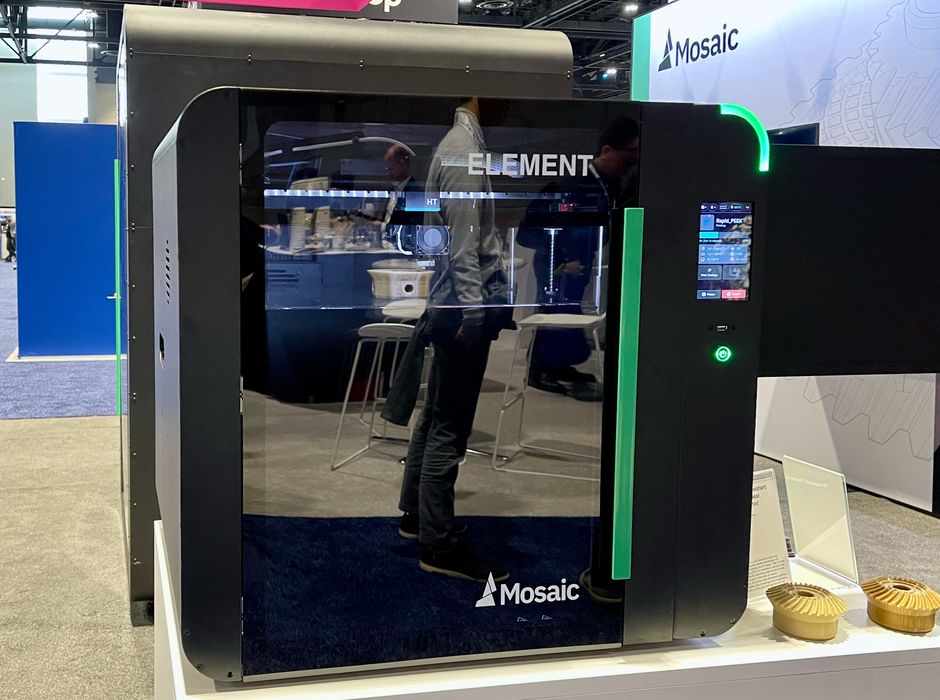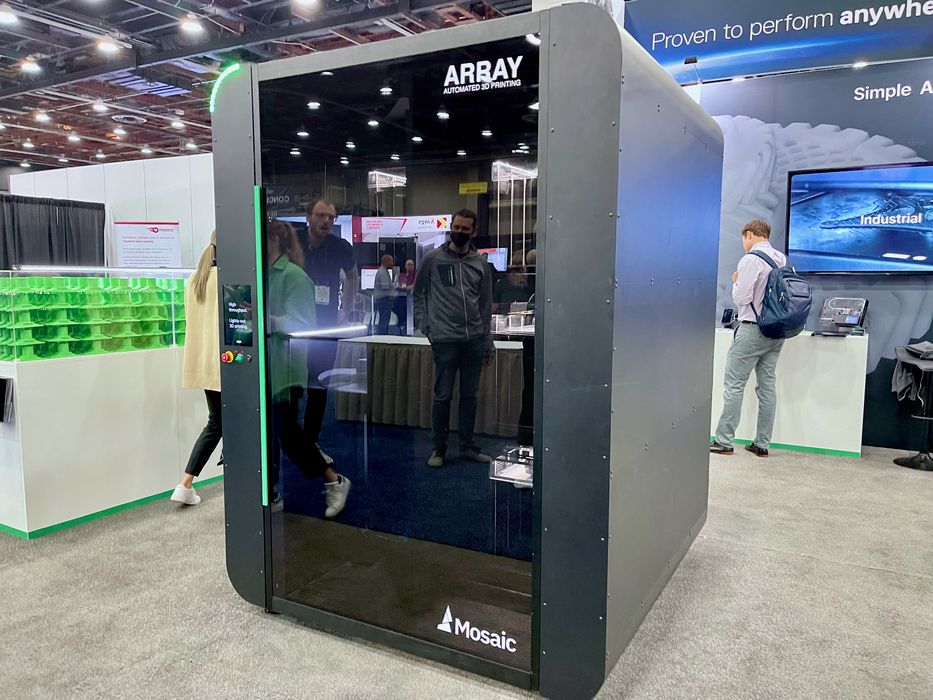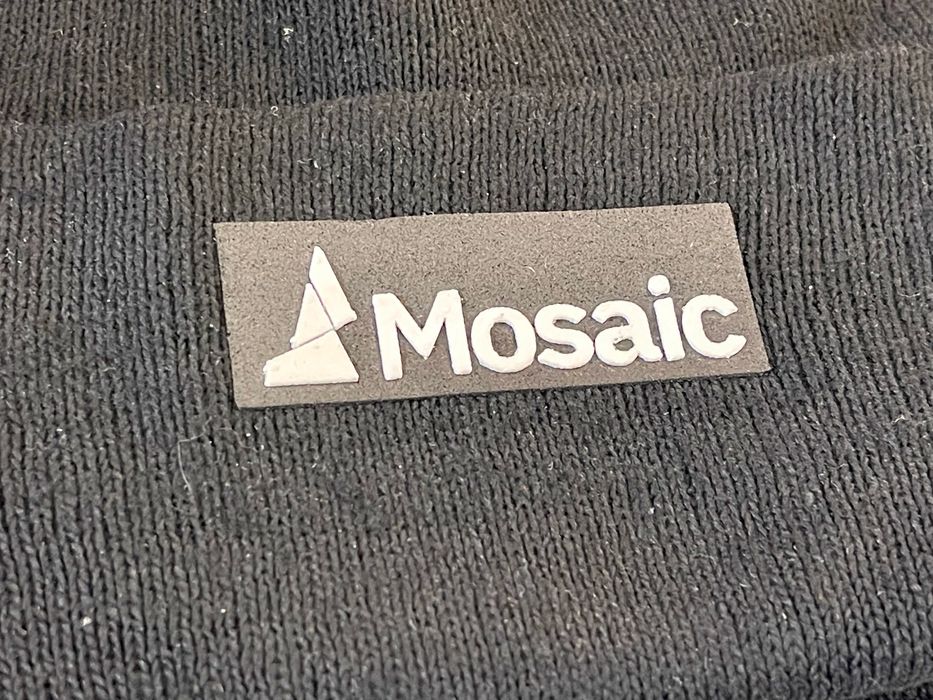
Mosaic Manufacturing seems to be executing to plan.
We recently spoke with representatives from the Toronto-based company about their latest plans for expansion.
While the company is by far more well-known for their popular Palette line of color 3D printing accessories, their future seems to lie in quite a different place.
That’s not to say they intend on discontinuing the Palette; it is still highly desired by desktop FFF 3D printer operators for its unique ability to snip segments of filament together to enable automated color switching during print jobs.
In addition to the Palette, Mosaic Manufacturing is focusing strongly on developing an entirely new product line to address manufacturing needs.
The core of this strategy is the Element 3D printer, shown at top. This is a professional-grade device with a large build volume of 356 x 356 x 356 mm, and is high temperature compatible. The Element’s hot end can reach a scorching 500C, and the print surface can reach 120C. The build chamber itself can be heated to 80C, which effectively eliminates warping of most materials. In fact, the Element can 3D print popular high temperature materials such as PEEK and even PEI, while using soluble support.
But that’s not all: the Element is just the printer, and Mosaic Manufacturing envisions bundling an array of these devices together in a kind of manufacturing unit, which they call the “Array”.

The idea is to set up one or more Arrays within a workshop to perform near-continuous manufacturing. Jobs would be dispatched to available Elements, and operators would be kept busy loading materials and unloading printed parts.
This all sounds quite ambitious, but how far in has Mosaic Manufacturing proceeded?
We’re told they have already shipped “Pilot” units, which I suspect are “alpha”-level. The first production batch of Elements is set for July and August of this year, when there should be an official beta test of the equipment.
Mosaic Manufacturing representatives told us they are “gearing up for production”, but that initial units are already completely sold out.
To me, that sounds quite successful and suggests they may consider expansion of their own manufacturing capacity in the near future.
Sales of machines is one thing, but offering services is another. Some new entrants to the 3D printing market have opted for simply offering print services and never selling the machines themselves. Would Mosaic Manufacturing consider a print service? We’re told they are not considering that approach at this time.

Finally, I asked about their highly unusual fabric printing system, E-Twill, which they first displayed a year ago. This is a variation of the equipment and materials that allows high-quality, durable and flexible prints to be placed directly on fabric. An example application would be for a sports uniform operation to print names and numbers on demand using the technology.
I found this approach very interesting, and wondered where it’s headed after the splashy launch last year. We’re told that there will be “fabric this year”, suggesting they could soon make the system an officially available product.
For such a dramatic shift in product strategy, Mosaic Manufacturing seems to be doing quite well.
